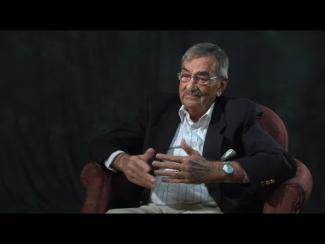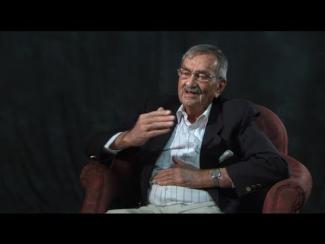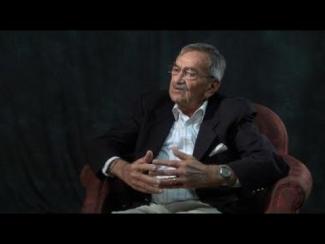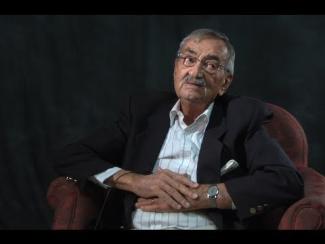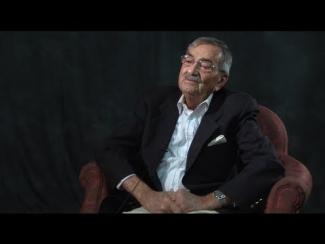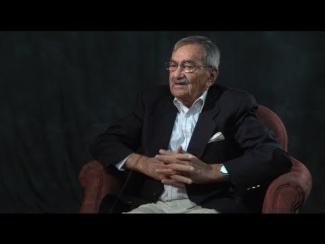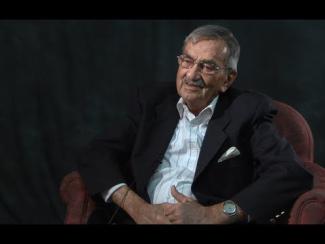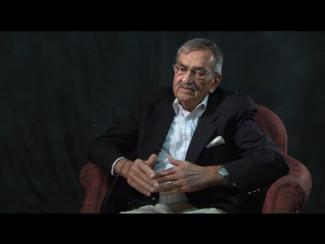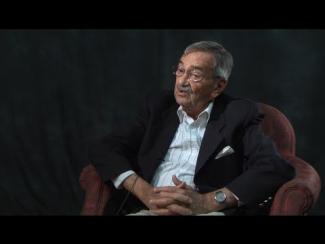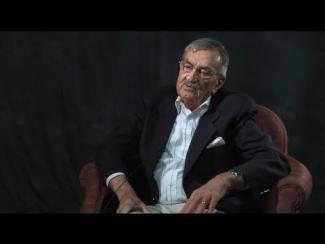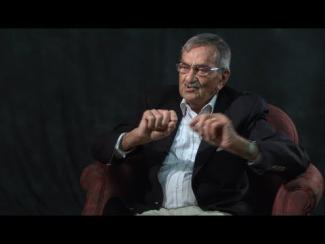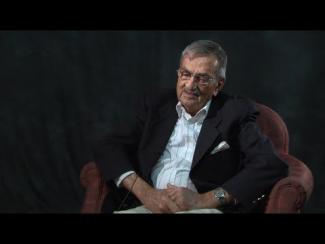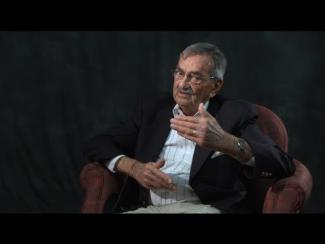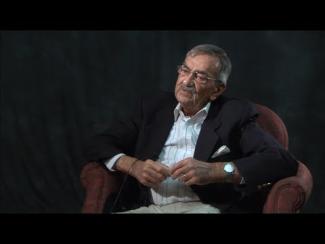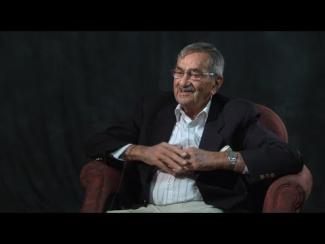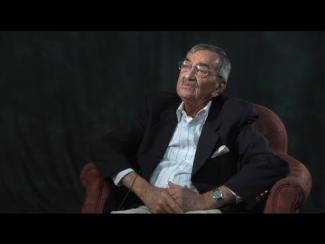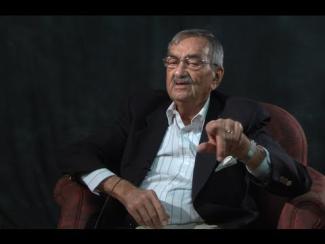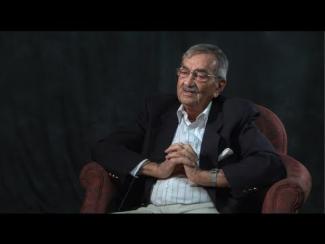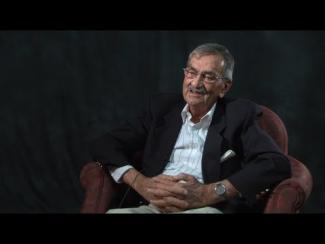The Yiddish Book Center's
Wexler Oral History Project
A growing collection of in-depth interviews with people of all ages and backgrounds, whose stories about the legacy and changing nature of Yiddish language and culture offer a rich and complex chronicle of Jewish identity.
Arnold Friedmann's Oral History
Arnold Friedmann, z"l, professor emeritus of Interior Design at the University of Massachusetts Amherst, was interviewed by Allie Brudney on November 8, 2011 at the Yiddish Book Center. Professor Friedmann was born in Nuremberg, Germany in 1925 into a comfortable, assimilated German-Jewish family. He attended gymnasium in Nuremberg where the students sang the "Horst Wessel Lied," the anthem of the Nazi Party, every morning. In 1936 he and the other Jewish students were forbidden to attend the "German" school and forced to transfer to a Jewish school instead. He vividly remembers the horrific events of Kristallnacht and his father's mistreatment by the Gestapo, which led his family to flee Germany for Palestine. Life in Palestine was difficult; he was unable to afford school so was apprenticed to a cabinetmaker at the age of thirteen. At eighteen, he joined the British military to fight the Nazis, and served as an ammunition specialist in Cyprus and Egypt. Once discharged, he moved to New York to attend design school at the Pratt Institute. He returned to Israel to serve as a quartermaster in the War for Israeli Independence, and then went back to Pratt, where he was awarded bachelor's and master's degrees in art and interior design. After teaching for many years at Pratt, he moved to the University of Massachusetts Amherst where he helped found a professional program in Interior Design and Architecture Studies. He was very much influenced by the Bauhaus and mid-century modern Scandinavian style. Although Yiddish was not a part of his childhood, Professor Friedmann became interested in the language and literature as an adult. He reflects on his antipathy toward Germany in the aftermath of the Holocaust; for thirty years he refused to speak German or buy German products. Since the 1970s he has changed his point of view. Toward the end of the interview, he discusses his Jewish identity and what that means in an American context. He notes that America allows Jews to be both American and Jewish – something that he does not take for granted.
This interview was conducted in English.
Arnold Friedmann was born in Nuremberg, Germany in 1925. Arnold died in 2017.

